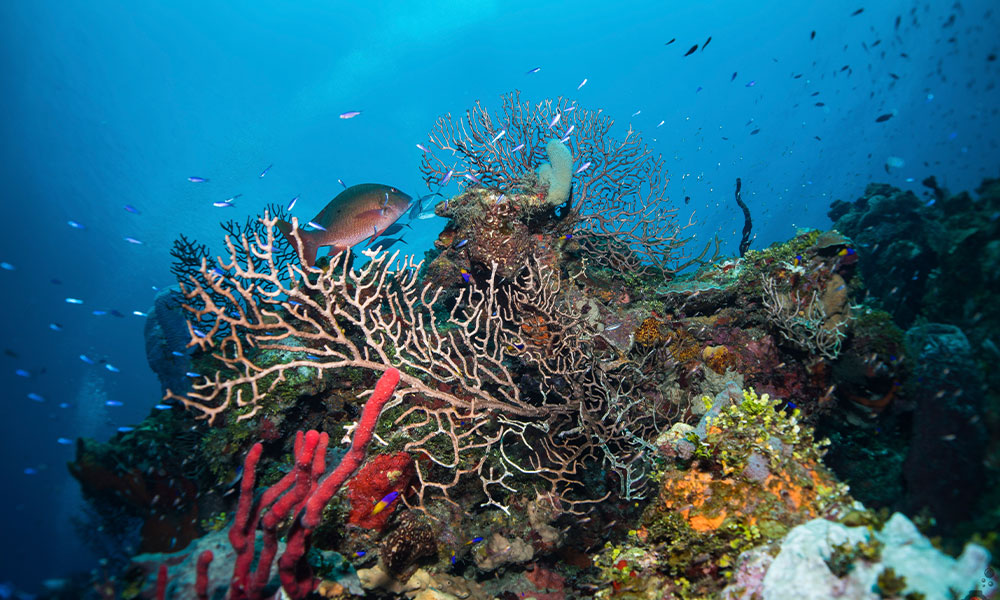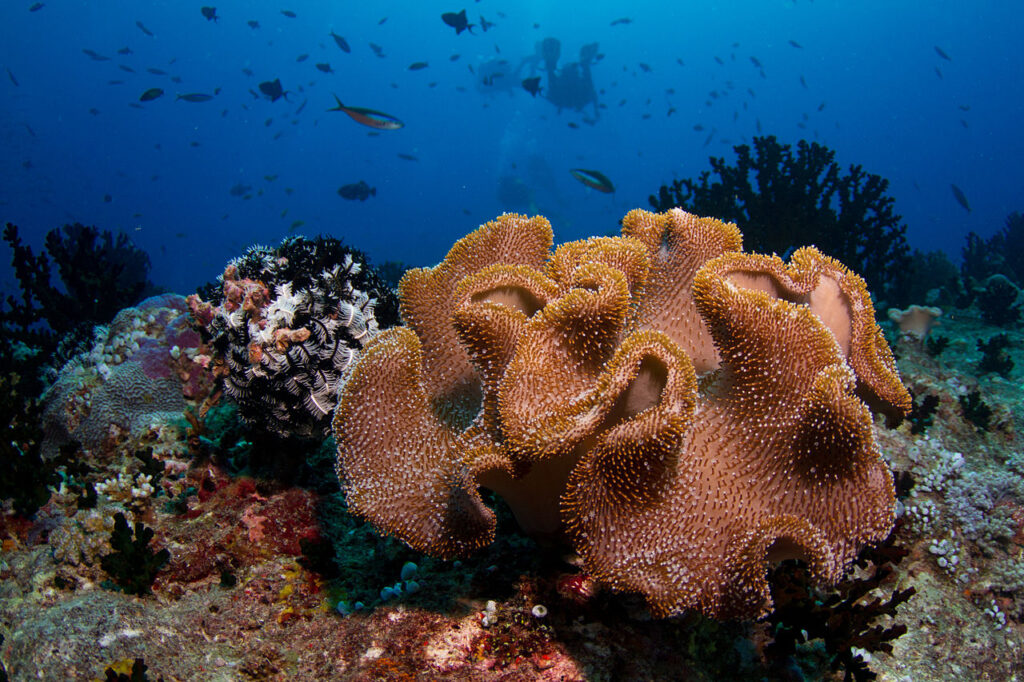Hang tight, because we’re about to clear up one of the ocean’s biggest misconceptions.
Have you ever looked at a coral reef and thought, “Wow, what a beautiful plant… or is it a rock?” You’re not alone in the confusion. But here’s the scoop: corals are actually animals, and they’re as lively and complex as the ocean itself. We’re diving into the world of corals to debunk some common misconceptions and reveal the truth about these vibrant underwater communities.
“But They Look Like Plants…or Rocks!”
The appearance of corals can lead to two common misconceptions – that they’re either plants or just inanimate rocks. Let’s explore why neither is true by taking a closer look at both soft and hard corals.
Plants? Not Quite
Soft corals, including sea fans, sea pens, and blue corals, belong to the Octocorallia group and challenge the plant misconception with their graceful, swaying movements. Unlike plants, soft corals don’t photosynthesize but have a symbiotic relationship with algae that do. Supported by spiny structures called sclerites rather than a hard skeleton, soft corals exhibit the flexibility and dynamism characteristic of animal life, contributing significantly to the reef’s ecosystem by offering shelter and a vibrant backdrop for marine life.
Rocks? Think Again
Hard corals, or stony corals, form the rigid, complex structures often mistaken for rocks. These corals are colonies of tiny polyps that secrete calcium carbonate, forming a hard skeleton that is the foundation of coral reef ecosystems. Hard corals’ ability to build and shape the underwater landscape showcases their role as living, dynamic animals. They capture food, engage in symbiotic relationships, and respond to environmental changes, far from the static existence of a rock.

“They Grow Like Plants, Don’t They?”
A common myth is that corals grow in the same manner as plants. While corals do grow and spread over time, their method of growth is distinctly animal. Corals grow by cloning themselves, a process where a single polyp divides into two or more new polyps, expanding the colony. This asexual reproduction, known as budding, is a trait shared with other animals, not plants. Moreover, corals can also reproduce sexually, releasing eggs and sperm into the water to create new coral larvae. This dual strategy for growth and reproduction underscores their animal nature, differing significantly from plant growth and reproduction mechanisms.
“Corals Photosynthesize, So They Must Be Part Plant.”
The presence of zooxanthellae, the symbiotic algae living within most corals, leads to the misconception that corals themselves perform photosynthesis. While these algae do photosynthesize within the coral’s tissues, providing essential nutrients, the coral itself is not capable of photosynthesis. This relationship is a form of mutualism where both the coral (animal) and the algae (plant) benefit, further emphasizing the coral’s role as an animal that depends on its relationship with plant-like organisms for survival, rather than being a plant itself.

“Corals Don’t Respond to Their Environment Like Animals Do.”
Another myth is that, unlike animals, corals do not respond to their environment. In reality, corals have a sophisticated relationship with their surroundings. They can sense changes in light, temperature, and water chemistry, adjusting their behavior accordingly. For example, corals can expel their symbiotic algae when water temperatures become too high, a stress response known as bleaching. While this is a defensive mechanism, it highlights corals’ sensitivity and responsiveness to environmental changes, traits characteristic of animals.
The Bottom Line
These vibrant ecosystems, crafted by small yet resilient animals, highlight the ocean’s incredible resilience and diversity. Recognizing corals as living entities prompts us to reevaluate our relationship with the marine environment. This understanding serves as a call to action, urging us to adopt more responsible behaviors and make choices that support the health of our oceans. By acknowledging our role in this ecosystem, we’re invited to contribute positively to the preservation of coral reefs and the rich biodiversity they sustain.

